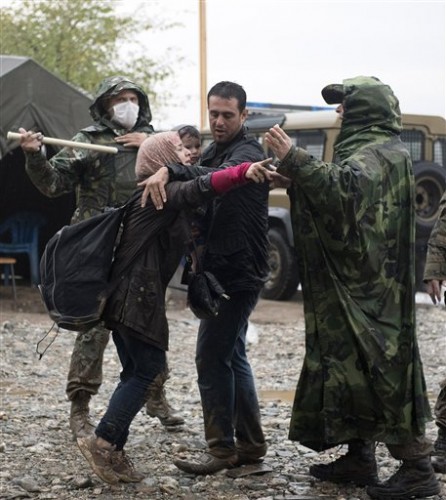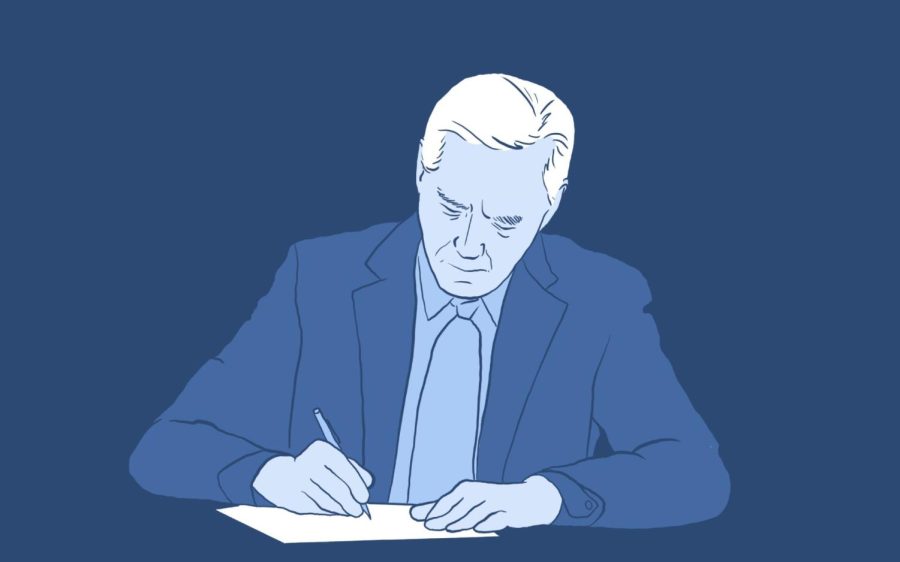
After a nationwide referendum on bailout conditions and long negotiations, Greece and leaders of the Eurozone reached an agreement July 14, preventing the country from defaulting after they missed a payment to the International Monetary Fund, or IMF, which has loaned the country at least $23.6 billion so far, according to the New York Times.
The three-year loan will keep the country from defaulting, but whether or not Greece can fix its economic woes will determine if there is another crisis. Greece will begin to reopen banks and address how to repay its debts to other Eurozone countries, the European Central Bank and the IMF.
Though the loan provides some breathing room, other issues like the rise in migrants entering the country from its shores, as well as the resignation of Prime Minister Alexis Tsipras are new issues the country will have to continue to deal with alongside its economic woes.
The history behind the current installment in Greece’s financial crisis can be traced back to 2001, when Greece joined the Eurozone — the Eurozone is typically regarded as a part of the European Union, EU, and implies that they share currency, the euro.
The economic issues the country faces began in June, when Greece failed to make the 1.5 billion euro payment — roughly $1.7 billion. The missed payment is part of an ongoing financial crisis in the country which can be rooted back to the global financial crisis from 2007 to 2009.
The crisis, called the worst financial crisis since the Great Depression, according to Reuters, forced Greece and others, such as Cyprus, Spain and Portugal, among others, to seek loans from the IMF. The bailout of banks internationally saved many countries from further financial crisis.
According to Animesh Ghoshal, professor of economics at DePaul, Greece was able to get credit easily and “financial markets clearly miscalculated the risk of lending to Greece, with interest rates on Greek bonds being almost the same as those for German bonds.”
Greece went on a “borrowing binge,” said Ghoshal. Greece increased wages and benefits, including early retirement, during this time. Goods and services became more expensive, but not as competitive, meaning that those looking to buy could go elsewhere for the products they needed. This situation presented Greece with three options, according to Ghoshal.
“Ideally, Greece should use its latest bailout (about $90 billion) and the breathing room it provides to increase productivity. This involves both investing in physical and human capital (which would have a long term payoff) and removing constraints that hold back the economy,” he said. “But I am not optimistic about this, and am afraid that the new agreement may only kick the can further down the road. If that happens, the solution is probably for Greece to leave the euro.”
The latest bailout package of $96 billion also includes easier repayment terms on some of the existing debt, according to the New York Times, but it requires Greece to accept more austerity measure, including pension cuts and tax increases. Though this current plan staves off a default for Greece, the current financial crisis has created tensions between Greece and other Eurozone countries, such as Germany, who have taken strict stances against debt relief because of Greece missing the payment.
The crisis, according to Ghoshal, was predictable but still unfortunate. To prevent further economic meltdown and potential default in the future, changing tactics and policies is key. Ghoshal feels that Greece is faced with a “significant period of hardship, whether it stays in the Eurozone or leaves.”
This hardship is further compounded by the resignation of Tsipras, who announced his decision in August. What this means for the country is uncertain.
“One way to interpret (the resignation of Tsipras) is a recognition of how difficult Greece’s situation is, both economically and in regards to immigration,” Richard Farkas, a political science professor said. “I’m not surprised he left because it’s complicated and there’s very little upside, but I don’t think (his resignation) means a great deal.”
Along with its economic troubles, Greece is also facing an influx of refugees fleeing countries from the Middle East and Africa, landing on its isles. Between January and August 2015, the EU, according to the BBC, detected more than 350,000 migrants at its borders. For 2014 the total number was around 280,000.
Refugees, or those who are seeking asylum due to political persecution as well as war conditions, faced in their home country — typically on the grounds of religious or personal beliefs — differ from migrants, or people whose reasons for leaving their home country may be tied more to economic disparity.
The bloody civil war in Syria and the rise of ISIS in Iraq, as well as the bloodshed happening in countries in Africa, according to Rev. Craig Mousin, University Ombudsperson, have been sources for why refugees are leaving. Economically, once in the EU one can move freely between the countries, opening opportunities for work and shelter.
Smugglers have contributed to the rise in the number of refugees at the EU’s borders.
“The criminalization of smuggling is an under known fact,” said Mousin. “There’s little care for life or safety. The desperation of people trying to leave leads to a higher number of people smuggling them out.”
This can end tragically, as witnessed by recent photos depicting a three-year-old boy, named Aylan, found drowned on a Turkish beach. His mother, his brother and he were trying to make their way to Greece. None of them survived, but their father, and husband, did.
According to the Associated Press, 125,000 people have made their way to Kos, a Greek island that is close to Turkey. More are expected, even though the country is still addressing its economic issues.
To address this, Mousin suggests solving the problem “at its source” and countries will also have to be more understanding and empathetic of the situation migrants and refugees are in. Reducing the number of wars in the world would also help save lives and reduce the number of refugees seen trying to enter the country through Greece, or on trains from Hungary to Germany.
“Any refugee problem that challenges borders is challenging to address. The numbers alone make this a difficult issue to process and solve,” Mousin said. “Countries can be more generous, but the fear is that they will be overwhelmed.”
Since the photo of Aylan surfaced other countries in the EU, like Germany and Iceland, have said they will take in more refugees, but an overall consensus on how to help has not been reached.







